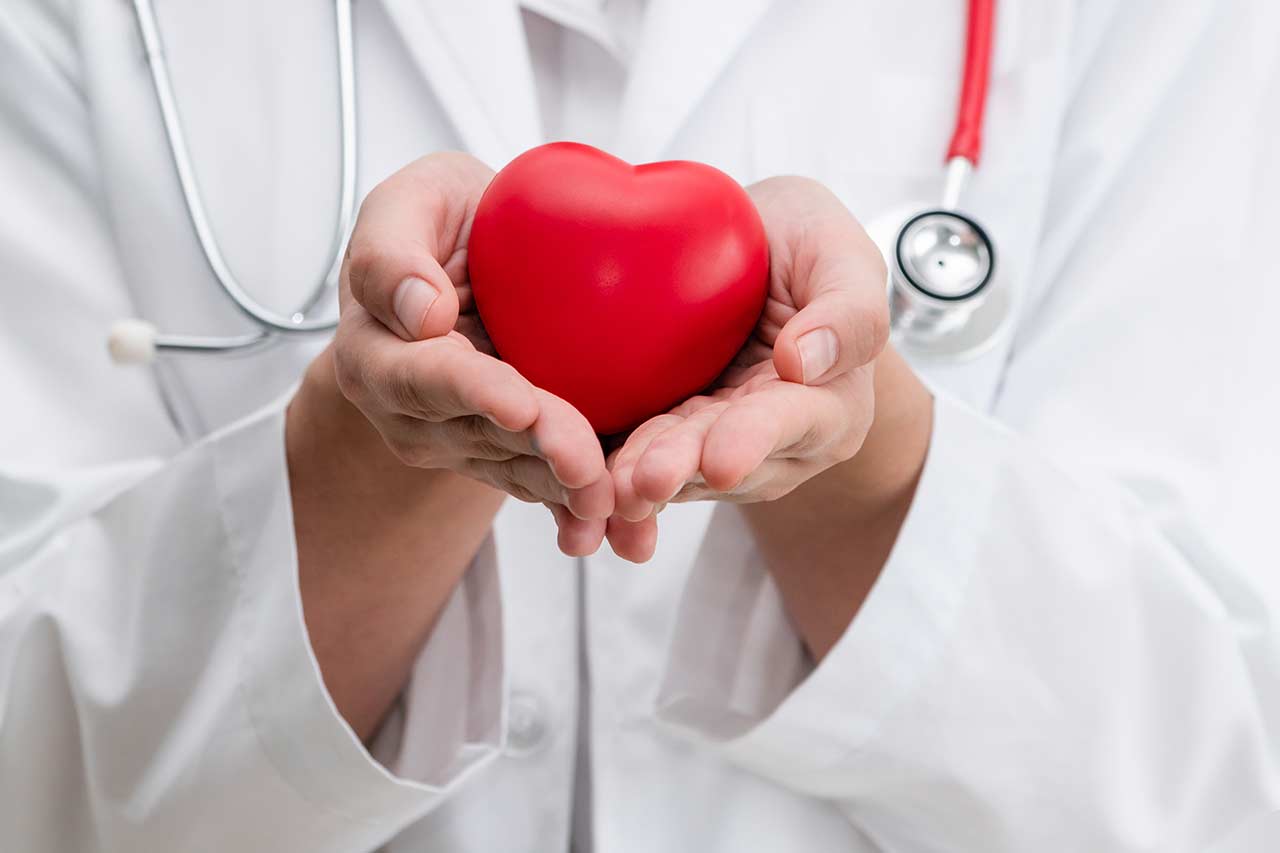Depression Treatment Specialist in Charleston, SC
Get specialized and comprehensive treatment for depression and other medical issues at The Center for Occupational and Environmental Medicine (COEM). Our experienced team provides personalized care to address the root causes of your condition, offering effective solutions to improve your overall well-being and quality of life. For more information, contact us today or book an appointment online. We are conveniently located at 7510 North Forest Drive North Charleston, SC 29420. Patients routinely fly in to be evaluated by COEM, as we serve patients internationally. Find out if you have been exposed, extensive lab testing is available.




Table of Contents:
What is depression?
What are the symptoms?
What are the alternative treatments for depression?
How do we treat depression at COEM?
What is ADD/ ADHD?
How do we treat CFS?
“I don’t’ want any more of this try, try again stuff. I just want out. I have had it. I am already exhausted.”
Everyone feels sad and has ‘the blues’ from time to time, the normal ups and downs of life. But if emptiness and despair have taken hold of your life and won’t go away, you may have depression. Metaphors describing depression are plenty. The ‘black dog’, ‘the black hole’, and also the term ‘a heavy laden black cloak’ are just a few. When you have depression it interferes with daily life and causes pain for both you and those around you. It makes it tough to function and enjoy life like you once did. No matter how hopeless you feel, you can get better. Understanding the meaning, symptoms, causes, and treatment of depression is the first step to overcoming the problem.
Some people describe depression as “living in a black hole” or “having a feeling of impending doom.” Sadness or downswings in mood or normal reactions to life’s struggles, setbacks, disappointments, and failures, some people use the word ‘depression’ to describe these feelings, but it is something more than just being sad.
Depression is a real medical condition with many emotional, physical, behavioral, and cognitive symptoms. Contrary to some misconceptions, depression is neither inevitable nor is it a character flaw.
There are several forms of depression:
• Major Depression
• Persistent Depressive Disorder
• Psychotic Depression
• Postpartum Depression
• Bipolar Disorder
People with depressive illnesses do not all experience the same symptoms. The severity, frequency and duration of symptoms vary depending on the individual.
Symptoms include:
• Persistent, sad, anxious or “empty” feelings.
• Feelings of hopelessness or pessimism.
• Feelings of guilt, worthlessness or helplessness.
• Irritability, restlessness.
• Loss of interest in activities once pleasurable including hobbies, art and sex.
• Fatigue and decreased energy.
• Difficulty concentrating, remembering details and making decisions.
• Insomnia, early morning wakefulness or excessive sleeping.
• Overeating or appetite loss.
• Suicide attempts.
• Aches or pains, headaches, cramps or digestive problems that do not ease, even with treatments.
• Traditional Treatments of Depression
There are two traditional treatments of depression.
• Psychological Therapies such as counseling
• Antidepressant Medicines
Counseling often involves one-to-one sessions, where the sufferer has a chance to express their feelings and problems. Other types of psychological therapies include cognitive behavioral therapy and psychodynamic psychotherapy where the therapist delves deeper into the childhood of the sufferer.
Antidepressant drugs, such as Prozac, have long been prescribed for depression. The various medications have been proven to alleviate mood disorders in some patients but do not prove successful in all and are known to sometimes cause side effects.
Alternative medicine is the use of a non-conventional approach instead of a conventional or traditional approach. There are certain risks and possible benefits in alternative treatment. These include:
• Exercise
• Meditation & Yoga
• Dietary Supplements
• Acupuncture
These methods suggest that you can help your depression by eating well, avoiding stress, and having a good support system.
At our center, when you say ‘Depression’, we write ‘Anti-depressant’. Our holistic medical doctors strive and rigorously search for the origins of depression in the patients. Every emotional, physical and chemical stressor is noted and then the doctors discern patterns and trends that often reveal underlying reasons for depression. Many urine and blood tests are utilized by doctors. The following medical detailed history is studied:
• Amino Acids
• Fatty Acids
• Vitamin/ Mineral levels
• Hidden thyroid imbalance
• Hormone tests
• Allergy testing
• Candida tests
• Hypoglycemia
• Acupuncture testing
We believe that you don’t just get sick, you are being made sick. The age old question, “Why me?” and “Why now?” do have answers.
ADD/ ADHD
It is common for children to occasionally forget their homework, daydream during class, or act impulsively. However, at times, inattention, impulsivity and hyperactivity are signs of attention deficit disorder (ADD/ADHD), which ends up affecting your child’s ability to learn and get along with others. In order to address this problem, the first step is to recognize the meaning, signs and symptoms.
ADHD or Attention Deficit/ Hyperactive Disorder is a common behavioral disorder that affects approximately 10% of school age children and up to 6% of adults. ADHD is a chronic condition that can be difficult and an enduring problem all throughout childhood and into adulthood. ADHD includes a combination of problems such as sustaining attention, impulsive behavior and hyperactive nature. Children suffering from ADHD often struggle with low self-esteem, troubled relationships, mood swings, temper tantrums and poor memory. The most important thing to keep in mind is that ADHD is not the child’s fault.
ADHD is more common in boys than in girls. It is usually discovered during the early school years. Research indicates that there may be ‘perfect storm’ combining genetic predisposition and environmental triggers. We in Environmental Medicine feel that “genetics loads the gun, but environment pulls the trigger”.
Symptoms
Attention-deficit Hyperactivity disorder (ADHD) was called Attention Deficit Disorder (ADD) in the past, but now ADHD is the preferred term as it describes both features of this condition, i.e. inattention and hyperactive-impulsive behavior. ADHD is broken down into three subtypes.
1. Inattention
2. Hyperactivity
3. Impulsivity
Impulsivity
• Having a short attention span and being easily distracted
• Making careless mistakes
• Forget things
• Has problems organizing daily tasks
• Tends to daydream
• Difficulties in following directions
Hyperactive & Impulsive
• Often squirms, fidgets or bounces while sitting
• Doesn’t stay seated
• Talkative
• Have trouble doing quiet hobbies
• Problems with interrupting or intruding
• Always seeming to be “on the go”
• Excessive running or climbing
Although it can be difficult to raise children with ADHD, it is most important to remember that they aren’t “acting out” or being difficult on purpose. They have difficulty controlling their behavior. Children suffering from ADHD, basically show the following symptoms:
• Inattentive
• Mood Disorders
• Anxiety Disorders
• Learning Disabilities
• Hyperactivity
• Impulsiveness
Treating ADHD
The traditional approach to ADHD treatment is psycho-stimulant medication. This type of treatment can be very effective and has helped many. However, often such treatments have dangerous side-effects and concerns over long-term use. Several different types of medicines are used to treat ADHD, traditionally. A study shows that Ritalin helps in treating ADHD, while another states that it has its own side effects such as possible growth suppression. Some children end up exhibiting insomnia, headaches, dizziness, loss of appetite, neurological ticks, abdominal pain, social withdrawal, fatigue, obsessive-compulsive disorder (OCD), “zombie-like” behavior and increased risk of drug addiction.
How we treat ADHD
At our Center for Occupational and Environmental Medicine, we study the entire biochemistry pattern of the patient and utilize the best non-toxic treatment patterns. A comprehensive diagnostic work-up is performed that includes the following: Initial evaluation, a series of tests to evaluate levels of toxic metals hidden yeast or bacterial infections, allergies (including food allergies) deficiencies of important minerals, iron and essential fatty and amino acids, and blood levels of glucose and insulin to rule out poor blood sugar which can cause mood swings.
Based on the above wealth of information, we are often able to identify the root cause behind ADHD in our respective patient. With an exact diagnosis the treatment is made easier and most importantly the treatment is becomes effective in every possible way. We have managed to gain wonderful results while treating our patients with natural and effective treatment options.
Chronic Fatigue Syndrome
Chronic Fatigue Syndrome or CFS, is a debilitating and complex disorder that causes persistent fatigue or exhaustion that impacts the daily life of an individual. People with CFS suffer from devastating fatigue followed be a host of other symptoms that are not improved by bed rest or sleep. It gets worse after physical activity or mental exertion, hence, limiting your ability to do ordinary daily activities.
CFS may also be referred to as Systematic Exertion Intolerance Disease (SEID), Myalgia Encephalomyelitis (ME), Post Viral Fatigue Syndrome (PVFS), Chronic Fatigue Immune Dysfunction Syndrome (CFIDS). A person suffering from CFS leads an extremely compromised quality of life.
It is estimated that around 1 million Americans suffer from CFS. Anyone can get the condition, although its more common in women than men and is less prevalent among children and adolescents. Besides severe fatigue, CFS causes muscle pain, impaired memory or mental concentration, insomnia and post-exertion malaise lasting more than 24 hours and, in some cases, can persist for years. It usually develops when people are in their 20’s to mid-40’s.
The majority of CFS conditions are appear suddenly, usually accompanied by a flu-like illness. Others can begin with several months of adverse stress, however the exact and accurate prevalence and major roles of infections and stress in the development of CFS is unknown.
Symptoms
The symptoms of CFS may vary from person to person. The primary symptom is severe fatigue, lasting at least 6 months and is not improved by bed rest. Individuals with CFS experience fatigue so strong that their activity levels and stamina decline dramatically, however it is not the only symptom.
Following are the other common symptoms:
• Loss of memory or concentration
• Feeling unrefreshed after sleep
• Muscle Pain
• Headaches
• Multi-joint pain without redness or swelling
• Frequent sore throat
• Tender lymph node in the throat and armpits.
Most conditions of CFS are mild or moderate but up to one among four people with CFS have severe symptoms. These are defined as follows:
• MILD: A situation where you’re able to care for yourself, but may need days off work or rest.
• MODERATE: You may have reduced mobility and your symptoms can vary. You may also have disturbed sleep patterns and need to sleep in the afternoon.
• SEVERE: You’re able to carry out minimal tasks, such as brushing your teeth, but have significantly reduced mobility and may also have difficulty concentrating.
Chronic Fatigue Syndrome
The following are summarized symptoms of Chronic Fatigue Syndrome:
• Muscular pain, Joint pain, and severe headaches
• Poor short term memory
• Painful lymph nodes
• Stomach pain and other problems like constipation, diarrhea, irritable bowel syndrome
• Insomnia
• Sensitivity or intolerance to light, loud noise, alcohol, and certain foods
• Psychological difficulties such as depression, irritability and panic attacks
• Less common symptoms like dizziness, excess sweating, balance problems and difficulty controlling body temperature
Causes of CFS
Theories abound about the causes of Chronic Fatigue Syndrome. No primary cause has been found that explains all cases of CFS.
Many people say it started with flu-like illness or other infection like cold or stomach bug. It also follows infection such as Epstein-Barr virus (the virus that causes mononucleosis or ‘mono’)
Effects of CFS
Infections: The most notorious pattern seen in CFS is when a person suddenly comes down with a flu like illness that does not seem to go away. These viral or bacterial infections can suppress the body’s master gland, the hypothalamus.
Disturbed sleep: The suppression of the hypothalamus gland can lead to poor sleep because the body confuses its day/night cycles. Because of this people with CFS have trouble staying in the deep restorative stages of sleep that recharge their batteries.
Treatments:
Medical treatments:
Medications that provide symptom relief are frequently the first line of treatment chosen by healthcare practitioners for a person with CFS. These include medication for pain, sleep disturbance, digestive problems such as nausea, depression, anxiety, and flu-like symptoms.
However, medications have not been universally successful because they tend to put a bandage on symptoms instead of killing the root problem.
Alternative Treatment:
• Nicotinamide Adenine Dinucleotide (NADH): NADH is a naturally occurring molecule formed from Vitamin B3 (niacin) that plays an important role. Although very promising, larger studies are needed to prove the effectiveness to this supplement.
• L-Carnitine: Carnitine, found in nearly all body cells, is responsible for transporting long-chain fatty acids into the mitochondria, the energy-producing centers of cells. It allows these fatty acids to be converted to energy.
• Ginseng: Ginseng is an herb that has been used in Asia for centuries to increase energy and combat figures. It enhances cellular immune functions by peripheral mononuclear cells in people with CFS.
• Coenzyme Q-10: Coenzyme Q10 is a compound found naturally in the mitochondria, the energy producing center of our cells. It is involved in the production of ATP, the main energy source of body cells.
• DHEA (Dehydropiandrosterone): DHEA is a hormone secreted by the adrenal glands and in smaller amounts by the ovaries and testes. DHEA levels are abnormal in people with CFS.
At our center, we try and find out the root cause of the fatigue by studying the patient’s history and by carrying out a comprehensive evaluation involving the following tests:
1. Hidden inhalant and food allergies
Fatigue can be caused by food to which you are allergic to. Foods can cause fatigue as far out as 48 to 72 hours after eating, but many patients will notice tiredness 30-60 minutes after eating an allergic food.
2. Hidden Low Thyroid
At times people with “normal” thyroid test results can still suffer from low thyroid functions. Tests like T-3, T-4, and Autoimmune Antibodies are useful. We look at these results and also listen to what the patient has to say and then treat accordingly.
3. Hypoglycemia
Studies have proven that about 30 percent of Americans have metabolic syndrome and many suffer from fatigue from glucose dysfunction. Tests to find out the glucose/ sugar levels are carried out if needed.
4. Hyperadrenalism
This includes a saliva hormone test to find out the damage of the adrenal gland if any. This damage results in non-refreshing sleep, often causing a person to struggle through the day, be fatigued, have cravings for sugar, salt, coffee, or tea to stimulate him/ herself, and dizziness when getting out of bed or chair.
5. Tests for Vitamin B12 levels, amino acid deficiency, testosterone deficiency, candida yeast levels, etc.
6. Medication Side-effects
A common cause of fatigue, is the intake of multiple medications.
Above are the multiple possible reasons for fatigue and that is the reason we believe that these comprehensive evaluations are key for a treatment to start. We evaluate each patient closely and unleash the hidden imbalances causing CFS. Chronic Fatigue Syndrome- Yes there is hope!
For more information, contact us today or book an appointment online. We are conveniently located at 7510 North Forest Drive North Charleston, SC 29420. We serve patients from Charleston SC, Mount Pleasant SC, Summerville SC, North Charleston SC, Goose Creek SC, Ladson SC, Hanahan SC, James Island SC, John’s Island SC, Daniel Island SC, West Ashley SC, Moncks Corner SC, Sullivans Island SC, Folly Beach SC, Isle of Palms SC and all of South Carolina, Nationally, and Internationally. Patients routinely fly into Charleston to be evaluated by COEM and to enjoy this beautiful city, which is a Condé Nast and Travel and Leisure Top Domestic and International Tourist Destination.

Check Out Our 5 Star Reviews


Additional Services You May Like
- Functional Medicine
- Allergy and Autoimmunity
- Asthma and COPD
- Autoimmune Diseases
- Allergy and Immunology
- Anti Aging Medicine
- Autism and Children
- ADHD
- Bacterial Infections
- Chemical Toxicity
- Candida Fungal Problems
- Cancer Treatment
- Chronic Illness
- Chronic Inflammatory Response Syndrome (CIRS)
- Chronic Fatigue
- Cardiovascular Disease
- Carbon Monoxide Poisoning
- Chelation Therapy
- Depression
- Environmental Medicine
- Ear Ringing and Dizziness
- Fatigue Treatment
- Fertility and Preconception Care
- Gut Health
- Heavy Metal Toxicity
- Hormonal Imbalances
- Headaches and Migraines
- Hormone Balancing (Men & Women)
- Hepatitis
- Integrative Medicine
- Independent Medical Evaluations
- Influenza
- Lab Testing
- Mold Toxicity
- Malnutrition
- Neurodegenerative Disease
- Natural Hormone Balancing For Women
- Preservative-Free IV Therapy
- Stomach Acid Imbalance
- Smoking Cessation Program
- Skin Therapy (Anti-Aging)
- Swine Flu
- Thyroid
- Mold Toxicity
- Vitamin D
- Weight Loss Program
- Women’s Breast Health Formula

Additional Services You May Like
- Functional Medicine
- Allergy and Autoimmunity
- Asthma and COPD
- Autoimmune Diseases
- Allergy and Immunology
- Anti Aging Medicine
- Autism and Children
- ADHD
- Bacterial Infections
- Chemical Toxicity
- Candida Fungal Problems
- Cancer Treatment
- Chronic Illness
- Chronic Fatigue
- Cardiovascular Disease
- Chronic Inflammatory Response Syndrome (CIRS)
- Carbon Monoxide Poisoning
- Chelation Therapy
- Depression
- Environmental Medicine
- Ear Ringing and Dizziness
- Fatigue Treatment
- Fertility and Preconception Care
- Gut Health
- Heavy Metal Toxicity
- Hormonal Imbalances
- Headaches and Migraines
- Hormone Balancing (Men & Women)
- Hepatitis
- Integrative Medicine
- Independent Medical Evaluations
- Influenza
- Lab Testing
- Mold Toxicity
- Malnutrition
- Neurodegenerative Disease
- Natural Hormone Balancing For Women
- Preservative-Free IV Therapy
- Stomach Acid Imbalance
- Smoking Cessation Program
- Skin Therapy (Anti-Aging)
- Swine Flu
- Thyroid
- Mold Toxicity
- Vitamin D
- Weight Loss Program
- Women’s Breast Health Formula










